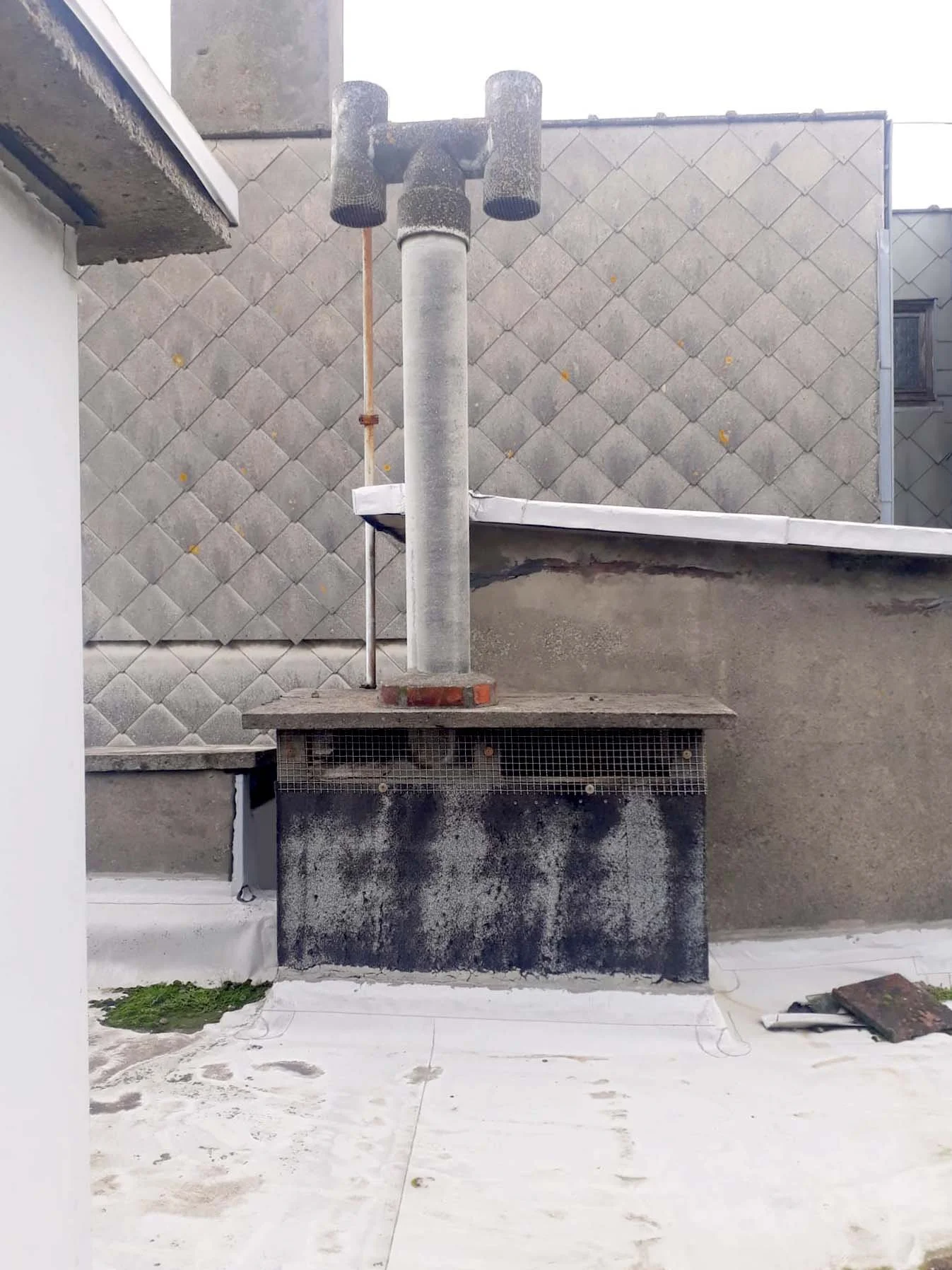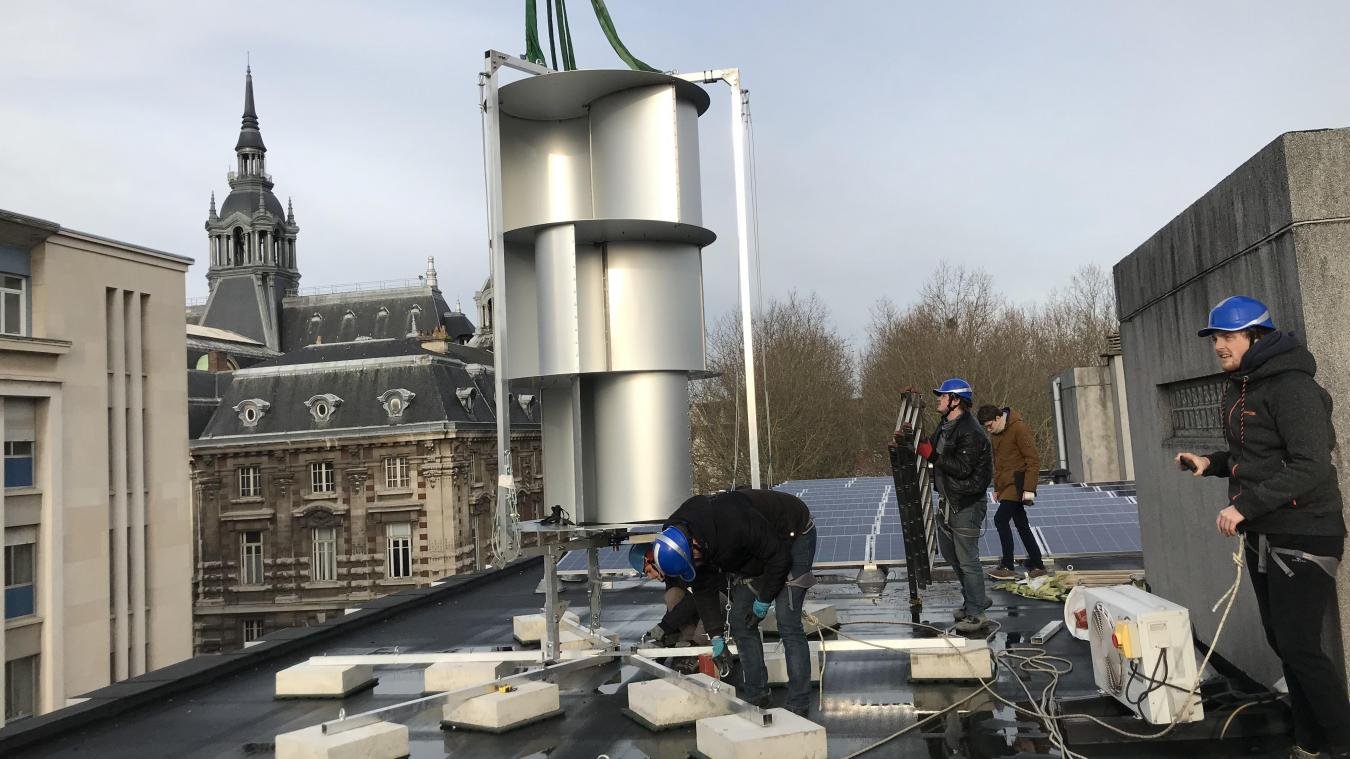
Installations
A view into the building’s internal systems and their upgrade to contemporary demands in terms of functionality, energy efficiency standards, and safety regulations.
Bringing old buildings to contemporary sustainability standards
Even if in good condition, many apartment buildings from the 1960 and 70s have outdated HVAC systems that fail to meet modern sustainability standards and will soon be subject to mandatory upgrades. The ageing systems are unsustainable, malfunction frequently, require frequent costly repairs, and can even pose fire hazards. As the world works towards a more sustainable future, upgrading heating systems is becoming a major priority, and forthcoming legislation will make it a legal mandate.
We implement state-of-the-art heating systems in ageing residential buildings, bringing them to contemporary sustainability standards. We supplement mechanical upgrades with further sustainability interventions, like installing solar panels, low-energy water pumps, and thermally efficient roofs, making homes more sustainable for the environment and affordable for residents.
Heat pumps
Solar water heater
As part of our renovation at St. George's, we proactively introduced sustainable heating and ventilation systems that meet forthcoming energy efficiency regulations. By upgrading these now, we saved the owner from having to overhaul their property again once the new legislation takes effect.
New systems
We recognize the growing significance of renewable energy sources and possess the expertise to conduct tailor-made research studies for each building. This approach allows us to determine the most suitable and efficient energy system, considering factors such as the existing supply infrastructure and renovation potential.
Our research extends well beyond traditional solar panels, as we continuously explore a range of alternative energy sources that may better align with the unique characteristics of each building, including, wind turbines, solar water heaters, and geothermal energy systems. We believe in providing comprehensive, customized solutions that maximize sustainability while meeting the specific needs of the property.
Geothermal Energy: Earth's Natural Heat
One of the exciting possible energy sources we explore is geothermal energy. It's a renewable energy source that draws heat from beneath the Earth's surface, serving various purposes like heating, cooling, and electricity generation. Despite its potential, geothermal energy remains underutilized. We consider it a promising path to an eco-friendly and cost-effective energy mix for building renovations.
Heat Networks: A Community Approach to Efficient Heating
Another focus area is heat networks, also known as district heating systems. These networks consist of underground pipes that transport hot water, connecting multiple buildings to a centralized heat source. This collective approach offers an efficient way for buildings to share heat for their heating and hot water needs, aligning with our mission to explore sustainable and energy-efficient solutions for building renovations.
Unéole - Wind turbines
Our dedication to staying ahead of the curve is an integral part of our process. We maintain constant communication with our suppliers and contractors. We constantly improve our understanding of evolving systems, continuously refine our detailing processes, and proactively anticipate the impacts on design.
Steps
Elements
Geothermal
Heat pumps
Wind turbines
Ventilation
Electricity
Solar panels
Water supply
Rainwater collection systems
Water pumps
Central installations systems
Strategies

Strategy 1: Shell
The multiple phased exterior renovation includes repair and insulation of structural elements, as well as a material selection process based on durability, functionality and aesthetics. Read more

Strategy 2: Integration
Denser cities require higher quality open spaces which include a building’s direct context and its landscaping, mobility, accessibility and fire safety aspects. Read more

Strategy 3: Installation
A view into the building’s internal systems and their upgrade to contemporary demands in terms of functionality, energy efficiency standards and safety regulations. Read more

Strategy 4: Densification
The process of adding layers to existing buildings to increase their aesthetic and financial value, simultaneously densifying the urban context without occupying valuable ground space. Read more

Why redevelopment?
A building is never truly finished; it can always be re-adapted and transformed to take upon a new form or function. Recycling architecture has been a common practice throughout history, and in many cases, it has led to the preservation of a large part of our current cultural heritage. Read more
















